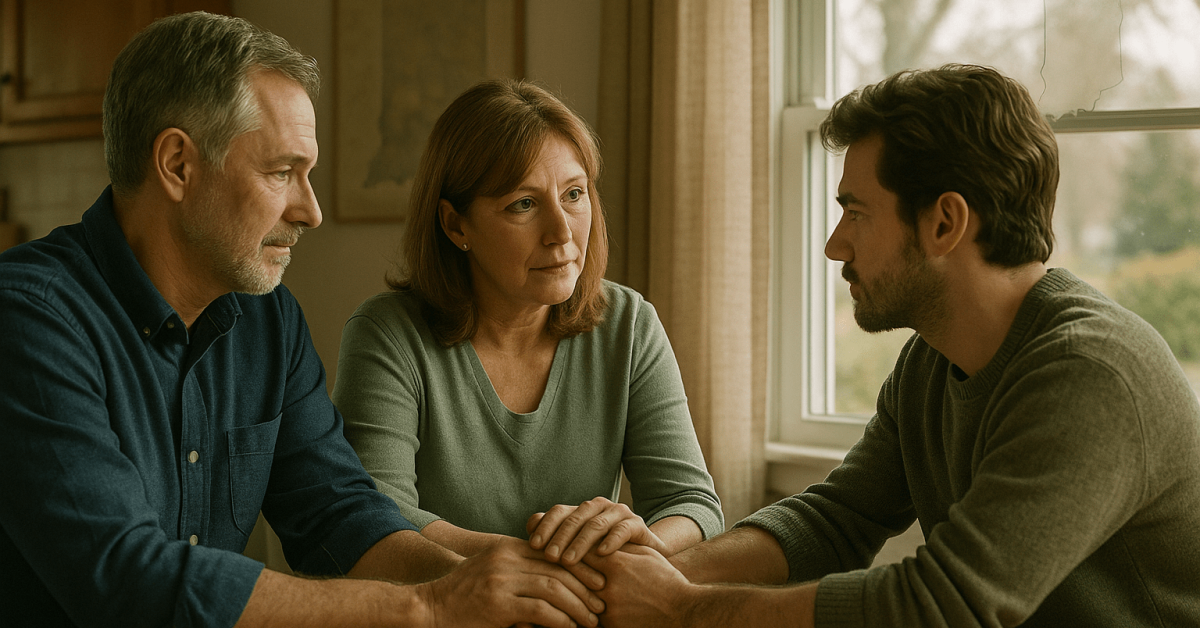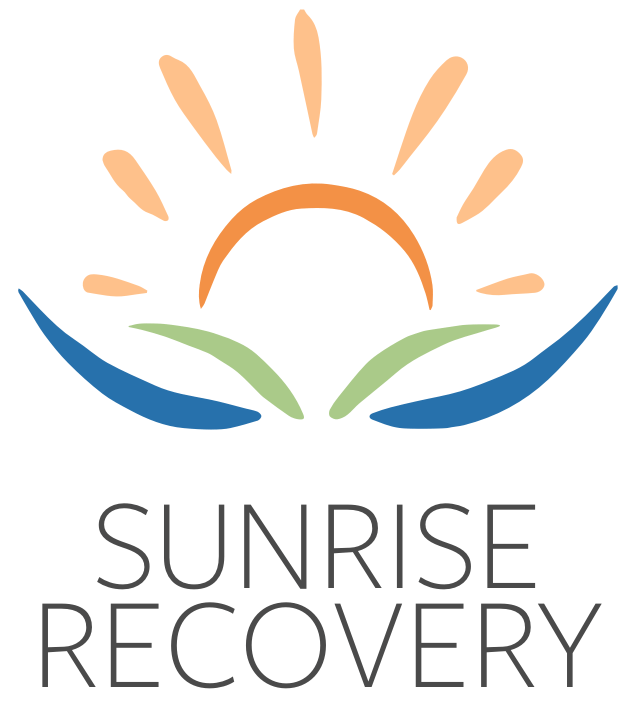Learning how to help a loved one with addiction can feel overwhelming, especially when you do not know where to start. You may see signs that something is wrong, but uncertainty, fear, or past experiences can make it difficult to act. These situations often leave you feeling stuck, even when you want to offer support.
In Clark County, Indiana, local resources are available to guide families and individuals through the recovery process. This article explains how to help a loved one with addiction by covering early warning signs, strategies for starting a conversation, and local treatment options that match your loved one’s needs. It also offers guidance on creating a supportive home, understanding financial concerns, and finding long-term recovery solutions.
Addiction can affect a loved one through alcohol, gambling, weed, or other forms of substance abuse. Positive change can happen when someone receives steady encouragement and practical help. With the right steps and reliable support in Clark County, Indiana, a family member can begin a path toward lasting recovery.
Recognizing the Signs: When Your Loved One Needs Help
Physical and Behavioral Changes
Changes in appearance or energy levels may be among the first signs of addiction. A person might start neglecting hygiene, sleeping too much or too little, or showing sudden mood swings. These shifts often indicate deeper substance abuse problems.
Financial and Social Red Flags
Unexplained money issues, missing valuables, or frequent borrowing can suggest something is wrong. Isolation from friends or family members and sudden changes in social circles also signal possible addiction. If your loved one starts avoiding work or important responsibilities, it may be time to step in and explore options for admission into a treatment program.
Taking the First Steps: How to Approach Your Loved One
Choosing the Right Time and Setting
Approach your loved one when they are not under the influence, and the setting feels safe and private. Avoid confrontations when emotions are running high or during family gatherings. A calm environment allows for honest communication and reduces the risk of defensiveness.
What to Say and What to Avoid
Focus on what you have observed and how it affects you, rather than accusing them. Avoid labels or harsh terms and try to express concern instead of frustration. Your goal is to open a conversation, not win an argument.
Staying Calm and Supportive
It helps to remain steady, even if the person becomes angry or dismissive. Supporting a loved one does not mean accepting harmful behavior, but it does mean listening and responding with compassion. Emphasize that your concern comes from care, not control.
Understanding Clark County Indiana’s Treatment Landscape
Public and Private Treatment Options
Clark County, IN offers both public and private options for those dealing with addiction. Public programs are often more affordable and may have waitlists, while private facilities tend to offer faster access and more flexible care models. Services are available for individuals struggling with alcohol, weed, or other forms of substance abuse.
Levels of Care Available
Treatment options range from basic outpatient care to more intensive day programs. Some people benefit from structured daytime treatment that still allows them to return home each evening. This type of approach offers clinical support while maintaining ties to home and family routines.
Specialized Services and Support Groups
Clark County, IN also has resources for people with behavioral addictions, such as gambling. Support groups and specialized programs can guide someone through recovery while addressing the specific nature of their addiction. Local providers often include family education sessions to keep you involved and informed.
Crisis Resources and Emergency Support
When to Seek Immediate Help
If your loved one is at risk of harming themselves or others, call emergency services immediately. Sudden changes in behavior or threats of overdose should be treated as urgent. Crisis intervention can be the turning point in helping someone move toward recovery.
24/7 Support Resources
Clark County, IN has 24-hour helplines that can connect you to local support. These services are available day and night to help individuals and families navigate urgent questions or find next steps. Calling a support line can be the first move toward safety and professional care.
Financial Considerations and Insurance
Understanding Insurance Coverage
Many people hesitate to seek treatment because of financial concerns. However, most insurance plans cover some form of addiction treatment, including inpatient, outpatient, and mental health services. Make sure to contact your provider to ask what is included and how long coverage lasts.
Public Funding and Assistance Programs
If insurance is not available, Clark County, IN also offers state-funded options. Some programs provide sliding scale payments or grants for eligible residents. It helps to speak with treatment providers in advance about payment policies, funding support, and cost expectations.
Creating a Supportive Home Environment
Setting Healthy Boundaries
One of the most important steps in supporting a loved one is learning to set boundaries. This may include refusing to enable addictive behaviors or maintaining distance during relapses. Boundaries protect both you and the person in recovery.
Removing Triggers from Your Home
Try to eliminate items or routines that may lead back to substance use. This might mean removing alcohol or encouraging new habits. Creating a stable, low-stress environment can help someone stay focused on recovery.
Building New Routines and Activities
Encouraging healthy routines can give your loved one a sense of structure and purpose. Suggest shared meals, walks, or community activities in Clark County, IN. Replacing old habits with new ones helps the person move through early recovery with more confidence.
The Role of Family Therapy
Benefits of Professional Family Support
Addiction affects more than just the individual and often places emotional, financial, and relational strain on parents, siblings, partners, and close friends. Family therapy can help rebuild trust, improve communication, and guide family members through shared challenges. Participating in therapy shows your loved one that recovery is a team effort.
What to Expect in Family Sessions
Sessions often involve open discussions about past hurts and future goals. A professional counselor helps each family member express their concerns and learn better ways to interact. These tools help families grow stronger together.
Long-Term Recovery Support
Understanding relapse as part of Recovery
Relapse does not mean failure. It is often part of the recovery process and can highlight areas that need more support. Understanding this can help your loved one feel less shame and more willing to try again.
Building a Strong Support Network
Encourage your loved one to stay connected to local support groups and treatment providers. Trusted friends, recovery mentors, and group meetings can offer steady encouragement during difficult times. A strong support network gives a person structure, motivation, and a sense of belonging throughout recovery.
Final Thoughts
Helping someone through addiction takes patience, consistency, and informed action. You can start by recognizing warning signs, approaching your loved one with care, and connecting them to treatment options in Clark County, IN. Whether the problem involves alcohol, weed, gambling, or other substance abuse issues, early support makes a lasting difference.
Recovery is not easy, but it becomes more manageable when families work together and stay involved. Creating a supportive home, understanding financial options, and participating in family therapy can strengthen your role as an ally in the healing process. For those with co-occurring mental health needs, dual-diagnosis treatment may offer the structure and support needed for long-term stability.
Sunrise Recovery provides care for individuals and families navigating addiction, offering professional guidance at every stage. If someone you care about is struggling, taking the next step today could change everything tomorrow.
What could change in your family’s future if you choose to act now?
Frequently Asked Questions (FAQs)
How do I know if my loved one needs professional addiction treatment?
Look for consistent signs such as physical changes, withdrawal from responsibilities, and repeated use despite consequences. These patterns often point to serious substance abuse problems. Speaking with a local treatment center can help clarify the next step.
What should I do if my loved one refuses treatment?
You can offer help, set boundaries, and continue to communicate. Sometimes it takes several conversations before someone is ready. Connecting with support groups in Clark County, IN can also give you tools to stay involved without enabling harmful behavior.
What types of addiction treatment programs does Sunrise Recovery offer?
Sunrise Recovery offers several levels of care that match the needs of each person. Some individuals begin with an initial evaluation to determine the best treatment path and may continue with structured daytime support before moving into ongoing outpatient care. Each plan is designed to match the person’s condition and recovery goals.
How long does addiction treatment typically last at Sunrise Recovery?
The length of treatment depends on the severity of the addiction and the person’s progress over time. Some begin with supervised care to manage withdrawal, then continue with additional services as needed. Consistent support and follow-up play a strong role in long-term success.
Does Sunrise Recovery accept insurance, and what if I can’t afford treatment?
Yes, Sunrise Recovery accepts many insurance plans and can help clarify coverage details. For those without insurance, there are alternative funding options that may be available. You can speak with our admissions team to explore solutions based on your insurance and financial concerns.








